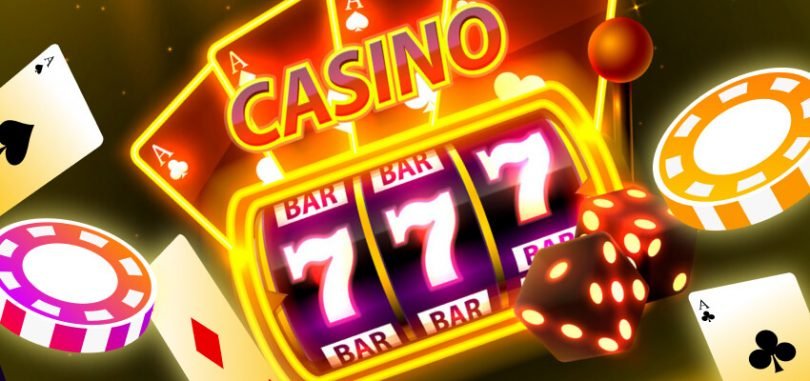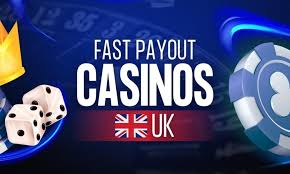
Az uj casino izgalma
Az uj casino világa az utóbbi években robbanásszerűen fejlődött. Az online szerencsejáték egyre népszerűbbé válik, és ennek több oka is van. Az internetes technológiák folyamatos fejlődése, a játékosok iránti kereslet növekedése, valamint a változatos ajánlatok mind hozzájárulnak a szektor virágzásához. Az uj casino, azaz új online kaszinók megjelenése egy újabb izgalmas fejezetet nyitott meg a játékosok számára, akik különféle lehetőségeket keresnek a szórakozásra és a nyerésre.
Miért válasszuk az uj casino-t?
Az uj casino számos előnyt kínál a játékosok számára. Először is, a legújabb kaszinók gyakran vonzó bónuszokkal és promóciókkal várják az új tagokat. Ezek a bónuszok nemcsak üdvözlő ajánlatokból állnak, hanem folyamatos promóciókból is, amelyek célja, hogy a játékosokat aktívan tartsák. A játékosokat vonzó játékszabályok, valamint a gyors pénzfelvételi lehetőségek is ösztönzik arra, hogy új kaszinókban játszanak.
Változatos játékkínálat
Az uj casino platformok egy másik jelentős előnye a változatos játékkínálat. Ma már nemcsak a klasszikus asztali játékok, mint a blackjack vagy a rulett találhatók meg, hanem számos innovatív nyerőgép is, amelyek különböző témákkal és funkciókkal rendelkeznek. Az új kaszinók gyakran együttműködnek a legismertebb játékszoftver-fejlesztőkkel, így a játékosok a legjobb minőségű játékokhoz férhetnek hozzá.
Mobil kaszinók
A mobil szórakozás népszerűségének növekedésével az uj casino világában is megjelentek a mobil kaszinók. Ezek az online platformok lehetővé teszik, hogy a játékosok okostelefonjukon vagy táblagépükön játszanak, így bármikor és bárhol élvezhetik a kedvenc játékaikat. A mobil kaszinók általában optimalizált felülettel rendelkeznek, ami biztosítja a zökkenőmentes játékélményt.
Biztonság és megbízhatóság

Az uj casino platformok egyik legfontosabb szempontja a biztonság és a megbízhatóság. A játékosok elvárják, hogy a kaszinók megfelelő regulációval rendelkezzenek, valamint, hogy a személyes adataikat biztonságban tudják. A legtöbb új kaszinó licenszelt és ellenőrzött, így a játékosok megnyugodhatnak abban, hogy a pénzüket és adataikat biztonságos környezetben kezelik.
Bónuszok és promóciók
A bónuszok és promóciók kulcsfontosságú szerepet játszanak az uj casino népszerűségében. Az új játékosok számára általában üdvözlő bónusz áll rendelkezésre, ami általában ingyenes pörgetéseket vagy extra pénzt jelent. A játékosok emellett különböző promóciókban is részt vehetnek, például hűségprogramokban, amelyek jutalmazzák a rendszeres játékot.
Társadalmi interakció és közösségi játékok
Az uj casino platformok közül sok lehetőséget kínál a társadalmi interakcióra. A játékosok csevegés közben barátkozhatnak, tapasztalatokat cserélhetnek, sőt, együtt játszhatnak is. Az élő kaszinójátékok különösen népszerűek, mivel a játékosok valós időben, valódi krupék által irányított játékokat élvezhetnek.
A legjobbak kiválasztása
Az uj casino választása során fontos figyelembe venni a kaszinó megbízhatóságát, a bónuszok mértékét, valamint a játékkínálatot. Érdemes különböző véleményeket olvasni, és az online fórumokon tájékozódni az egyes kaszinókról. A tapasztalt játékosok véleménye segíthet abban, hogy a legjobb döntést hozd meg.
Következtetés
Összességében az uj casino platformok rengeteg lehetőséget kínálnak a játékosok számára. Az innovatív játékok, a vonzó bónuszok, a biztonságos környezet és a társadalmi interakció mind hozzájárulnak a sikerükhöz. Ha még nem próbáltad ki az új online kaszinókat, itt az idő, hogy felfedezd ezt az izgalmas világot, és megtaláld a számodra legmegfelelőbb platformot.









